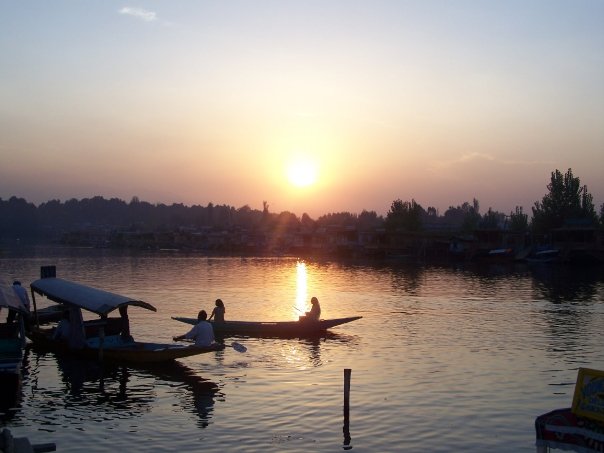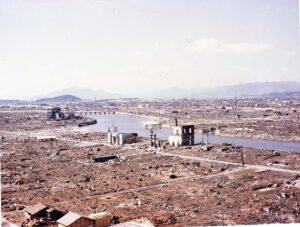Paradise forsaken in Kashmir
By Khaled Diab
With the separatist movement committed to non-violence, now is a good time to visit Kashmir.
October 2008

Since partition in 1947, Kashmir has experienced a spectacular fall from grace. Once upon a time, its warm and soft name conjured up images of a Himalayan paradise suspended between the heavens and earth.
Today, the mountainous state, caught between the territorial greed of India and Pakistan, evokes associations with conflict, strife, and, above all, a tense standoff along a precipitous line of control between two nuclear-armed foes. Despite its troubled present, we found that Kashmir still has the ability to charm – and it felt safe.
Although the state is predominantly Muslim, its winter capital on the Indian side, Jammu, has a large and vibrant Hindu population and has provided shelter for Hindus fleeing the insurgency in the Kashmir valley. It is fondly known as the ‘City of Temples', which includes one inside Bahu fort where worshippers yearn to be splashed by the milk poured on holy goats.
The fort and all the tourist sights in the region are complete security fortresses, reflecting an underlying official nervousness and fear of terrorist attacks. Although visitors are padded down and searched everywhere in India, in Jammu and Kashmir, you must pass several checks and surrender your camera and bag, too. The never-ending army barracks not only blight the landscape but are also a nuisance to locals.
Despite the inter-communal tensions that flare up in the city occasionally, we sensed little obvious hostility between Hindus and Muslims. Interestingly, Jammu is dotted with Sufi shrines, known as Durghahs, where people of all faiths flock to revere the Muslim mystics buried there. In our time in Jammu, we did not come across any other foreigners which made us something of a local novelty.
For sheer beauty and majesty, Srinagar, the state's summer capital, is the place to be. Its cool mountain atmosphere is welcome after the waterlogged air and soggy stickiness of the lower altitudes.
The city's centrepiece is the magnificent and tranquil Dal Lake. My wife was intrigued to see whether the lake was really as icy blue as Kashmiri skies, as Salman Rushdie describes it. But it turned out that the weed and algae which are slowly choking the lake have turned it more emerald green than icy blue. Similarly, few Kashmiris actually possess eyes which are “the astonishing blue of mountain sky”, as Rushdie puts it.
Since the British docked the first houseboats on Dal in Victorian times, the lake has evolved into a veritable floating community. Roving tailors, grocers, photo shops, and discreet offies also float by the houseboats on the backs of small boats called shikaras.
Srinagar is famous for its stunning Mughal gardens which, with their symmetry and flowing water, are reminiscent of gardens across the Islamic world. Young couples, many of whom arrived there on the backs of motorbikes, wander together, not touching, through the parks, the girls in colourful salawar kameezes and the boys in jeans and shirts. This phenomenon is deceptively liberal, one local explained, because most of the couples are courting within the confines of an arranged relationship.
Although most people are friendly and welcomed us constantly to Kashmir, three religious-looking young men we passed several times caught our eyes. Their flashing white teeth and smiling beards were very different to the menacing media image of conservative Muslims. Amusingly, like other Indians we met, they struck a serious pose when we came to photograph them which, coupled with the fading sunlight, gave them a wholly undeserved sinister edge.
Unlike the hustle and bustle of the ancient quarters of other Indian cities, Srinagar's old town is relatively peaceful. Its Sufi shrines and Sikh temples aside, the city's most intriguing architectural feature is its unique central mosque. Lacking minarets and featuring by ornate wooden ceilings, roofs and columns, the Jama Masjid conjured up images of China in my head and of the Vikings in my wife's.
Despite the tranquillity of our surroundings, tension was never far below the surface. The Indian army and police were everywhere and the city lived by an unofficial curfew. At around 8.30 pm, all the shops would close and eateries would suddenly empty as people rushed for the shelter of their homes. Several locals told us that, although the official curfew was abolished, they do not stay out because they are still regularly hassled by the security services after dark.
In fact, it seems the Indian army presence, which to the innocent outsider resembles a full-scale occupation force, is the subject of much resentment. We heard numerous complaints from locals about feeling constantly watched and the economic price of the conflict. One told us that even many of the Kashmiris who were once happy to be a part of India have gone off the idea due to Indian heavy-handedness.
As a reminder of the underlying volatility of the area, the army shut down Srinagar and the entire Kashmir Valley to thwart a planned pro-independence rally. This left us wondering how it was that a country which prides itself on being the world's largest democracy could stifle free expression in such a massive way, especially as the wave of protests which have swept the area since the summer have been peaceful ones, with the violence coming mainly from the army, causing the death of 45 protesters in the past few months.
We suffered the minor inconvenience of not being able to enjoy a relaxing last morning on the houseboat we had rented, the rudeness of swaggering officers and the Catch-22 challenge of getting to the airport when we were allowed to move but nobody else was.
The locals, however, were left to endure effective house arrest and a shoot-on-sight curfew. The Indian prime minister Manmohan Singh unwisely chose this time to go and open Kashmir's first train line, triggering angry demonstrations.
For the rest of our trip in India, we monitored the country's English-language media to try to learn the latest about the situation in Kashmir. With the exception of one small paper called The Asian Age, we found no mention of the crackdown beyond a couple of news-in-brief items. With that kind of media blackout, it's little wonder than so many Indians believe the mess in Kashmir is solely Pakistan's fault.
________
This column appeared in The Guardian Unlimited's Comment is Free section on 22 October 2008. Read the related discussion.


